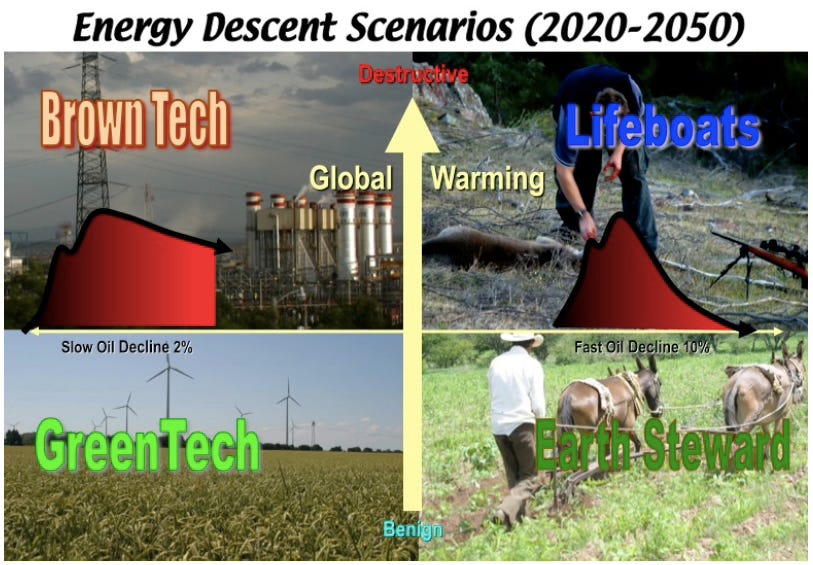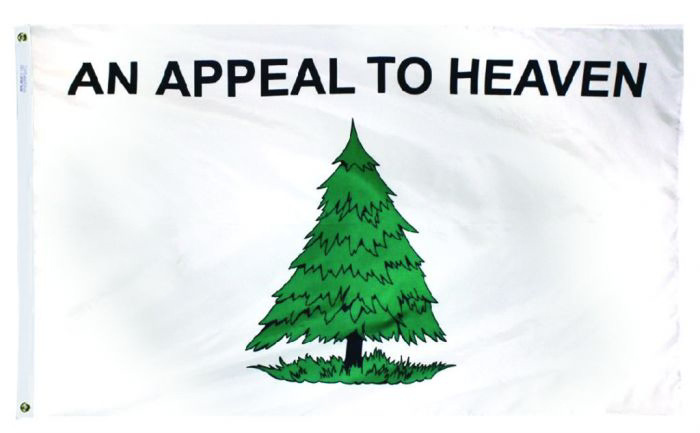The End is Nigh… Please!
The courage to crash the system
The Sayings of Abu Francis
This year, the Science and Security Board of the Bulletin of the Atomic Scientists moved the Doomsday Clock to 89 seconds to midnight — the closest it has ever been to catastrophe.
Some call it the Serenity Prayer: “God grant me the serenity to accept the things I cannot change, etc.” I say, let’s get on with the Courage Prayer: “God grant me the courage to change the things I can.” There’s no serenity in not changing what we can, and need, to change.
It’s the end of the world as we know it. And I feel fine. The urban, industrial, globalized, 20th-century paradigm has brought us to the precipice of ecological and economic collapse. We’re going off the cliff… time to stop grasping for handholds and just learn to fly.
Permaculturists saw this coming in the 1970s. Australian bio-geographer Bill Mollison worked in the Tasmanian forests and was profoundly struck by how far modern humans had ventured beyond the self-sustaining systems of nature. There was a lot of talk about the end of the world then. Evangelical Christians reading Hal Lindsey’s prophecy classic, The Late Great Planet Earth (with the Second Coming of Christ triggered by the 1948 rebirth of the state of Israel), were getting packed for the Rapture.
A think tank called the Club of Rome released a series of forecasts based on computer-modeling of world food production data, population levels and industrial output. Their report, Limits to Growth, sounded the alarm that if business (and consumption) continued as usual, the world as we know it might collapse in the first half of the 21st Century. Right about now.
Jesus didn’t come back, but the data did.
Greenhouse gases appeared to be warming the climate faster than scientists were expecting in 1988. The UN held its ground-breaking “Earth Summit” in 1992 in Rio de Janeiro and produced a document known as Agenda 21. Climate change was still non-partisan then, with President George H.W. Bush signing the original Rio Declaration. The warnings were clear when climate change was something humanity could possibly slow and stop. But we didn’t have the courage to make the changes.
Future scenarios
Permaculture was developed in the wake of Limits to Growth, predicated on designing a sustainable society that might survive ecological and economic collapse. After watching a dozen climate-change conferences come and go with no real progress, permaculture co-founder David Holmgren published Future Scenarios in 2007. He argued that the two biggest punches about to wallop our species were the onset of climate change and the peaking of global oil supply.
Holmgren projected (not prophesied) four different future scenarios depending on 1) how fast climate change would wreak havoc and 2) how soon we would run out of cheap energy. If climate change and oil depletion came gradually, Holmgren described our future in terms of a “Green Tech Scenario” – a slow evolution towards sustainability without major economic collapse or conflict. On the other extreme, he called rapid climate change and rapid oil depletion the “Lifeboats Scenario.”
In between is a scenario where climate change stampedes upon us but there’s enough fossil-fuel power to maintain the status quo: The “Brown Tech Scenario.” Holmgren concluded we were headed into Brown Tech – complete with world governments exerting more control and abandoning free-market ideologies for command economies. Climate change-induced natural disasters would likely bring governments sniffing for more control in the name of public safety. “The political system could be described as Corporatist or Fascist (which Mussolini described as a merger of state and corporate power),” Holmgren wrote in 2007.
While Americans wring their hands about all the things they cannot change, they’re missing the most important thing they can do.
Crash the system
In December 2013, Holmgren published “Crash on Demand.” Since global economic collapse (the result of people unable or unwilling to consume more and more resources) is about the only thing that will halt greenhouse gas emissions, why not sooner than later? The End should be nigh. Instead of laboring to build mass movements where 90 percent of the population must rise up to shake off the chains of their masters, how about building a mass critical enough to crash the system? Holmgren estimates it would take only about 10 percent of the world’s middle class.
This relatively small group of party crashers would have to take this seriously. They would have to reduce consumption (including debt) by 50 percent and move 50 percent of their assets into the local economy. That investment in community-based economics would be crucial. People need to eat and a parallel local food economy would be absolutely necessary to keep crash on demand from spiraling down into the Lifeboats Scenario.
Can you move any money you now park on Wall Street (IRAs, 401-ks, stocks, bonds, annuities) back to your region? Transfer all funds out of banks into local credit unions? Move surplus funds from financial institutions to real estate – the ultimate local investment – by paying down/paying off a mortgage? Stop spending in corporate stores and Amazon, and turn strictly to local business? Dedicated localization has great potential to crash the climate-crashing culture and get us on to the better, braver new world.
This is the essence of permaculture for David Holmgren. He’s been working on this for 35 years – a nature-connected self-reliance that helps nurture a giving-based community. “We don’t have control over the planet, but we have collective control over the man-made economy,” he says. “We’re doing permaculture to build this parallel economy and we’re doing it because we believe it’s the right thing to do.”
What say you?




Fantastic post! Like Holmgren and Mollison I saw this coming in the 1970s. The crash is coming and the sooner it happens the better. The more degraded our ecosystems become before the collapse the less the world's carrying capacity will be for humans and most other life forms. Collapsing soon gives us hope. Hardly anyone says this. I am a permaculturist, a farmer and was raised Catholic. So I just signed up as a paid subscriber.